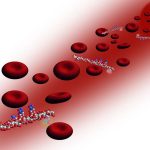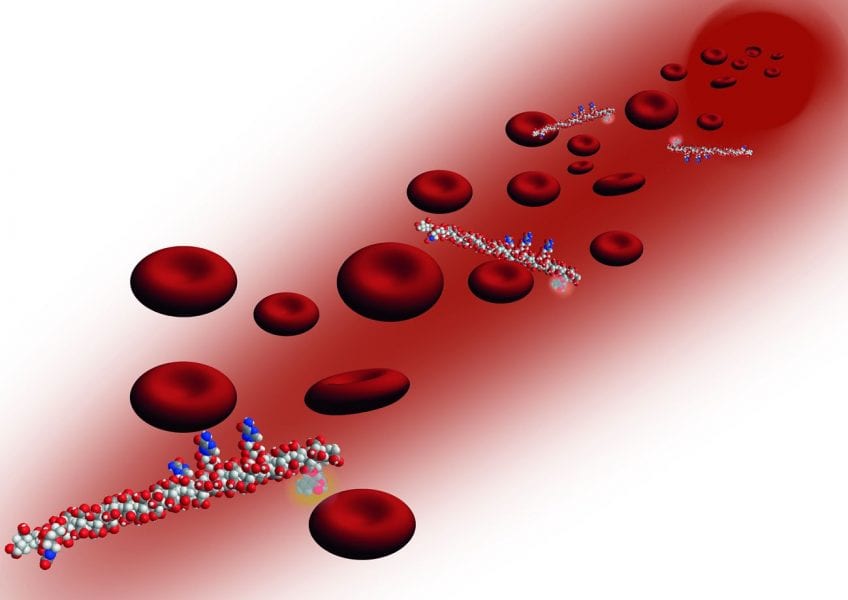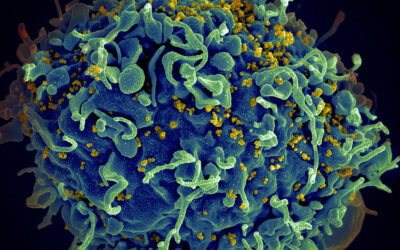Ribavirin (RBV) is a broad-spectrum antiviral agent with severe dose-dependent toxicity associated with non-specific accumulation in the red blood cells (RBC), and resulting anaemia. The concentration of RBV in erythrocytes may exceed that in plasma by as much as a factor of 100 which results in a volume of distribution of RBV of 2 000 L and allows only a fraction of this drug to reach its target, the liver.
000 L and allows only a fraction of this drug to reach its target, the liver.
To address this issue, the group around Alexander Zelikin (Aarhus, Denmark) now employs tools of polymer science and synthesize RBV-containing polymers based on poly(N-vinyl pyrrolidone) and poly(acrylic acid). They show that the newly synthesized macromolecular prodrugs exhibit minor-to-negligible degree of association with erythrocytes. Thus they can effectively eliminate the origin of the main side effect for RBV. The therapeutic benefit of macromolecular prodrugs of RBV was further illustrated by a matched efficacy in suppressing the production of nitric oxide by stimulated cultured macrophages as compared to pristine RBV. This effect was associated with only minor cytotoxicity – in stark contrast to a RBV based treatment which results in a significant decrease in cell viability.
These results contribute significantly to the development of antiviral polymer therapeutics and delivery of RBV in particular.

















